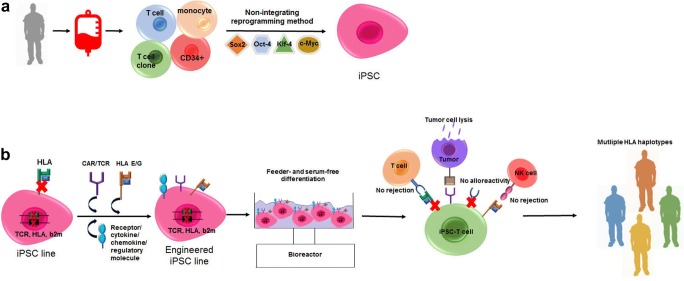Fig. 1.
a Peripheral blood cells serve as a primary source to generate iPSC lines by non-integrating delivery of reprogramming transcription factors. b Generation of iPSC-derived off-the-shelf tumor-specific T cells. iPSCs are genetically modified to bear desirable immunotherapeutic properties. The expression of TCR and HLA is knocked out or silenced to prevent alloreactivity and graft rejection respectively. HLA-E/G molecules can be overexpressed to avoid NK cell–mediated transplant rejection, whereas antigen-specific TCR/CARs can direct anti-tumor activity. Further, introduction of the expression of immune receptors, cytokines, chemokines, or other immune regulatory factors may enhance anti-tumor function. Genome-edited master iPSC lines are differentiated under GMP-grade conditions to fully functional histocompatible tumor-targeting T cells accessible to all patients regardless of their HLA haplotype

